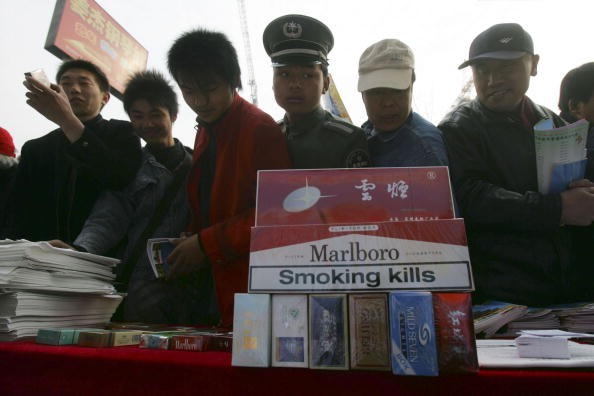China’s tobacco regulatory body has been blocking the use of graphic warning labels on cigarette packages, another reason why the country is struggling to reduce the number of smokers, according to a 2015 China tobacco control report released on Tuesday.
The biggest obstacle to using graphic warning labels on cigarette packages comes from the State Tobacco Monopoly Administration (STMA), which believes such images could lead to a decline in sales, especially for high-end cigarette brands, Wu Yiqun, deputy director of Beijing-based NGO ThinkTank Research Center for Health Development, said in an interview with the Global Times.
Cigarettes sold in mainland China are usually printed with large brand logos or images of scenic spots, with only a small number carrying written health warnings in small font sizes.
As of May 2015, 85 countries and regions have made the use of graphic warning labels mandatory, with the images usually covering more than half of the package in 60 countries and regions, the report said.
The tobacco industry's opposition to the use of graphic warning labels is another reason Chinese smokers have insufficient knowledge about the hazards of smoking and are reluctant to quit the habit, it added.
Only 17.6 percent of smokers plan to quit the habit in a year and 14.4 percent have succeeded in doing so, according to the Chinese Center for Disease Control and Prevention (CDC), based on a survey conducted on Chinese adults published in 2015.
The CDC petitioned the government to require printing of warning labels on packages in 2016.
"We will lobby government advisers and legislators during this year's two sessions," Wu said.
The CDC report also revealed that the number of smokers in China has risen by 15 million in the past five years.
Describing the figure as "completely unacceptable," Benrhard Schwartlander, representative of the World Health Organization (WHO) in China, urged the country's lawmakers on Tuesday to implement a nationwide tobacco control law in 2016.
The appeal was echoed by Wu, who said that only 18 Chinese cities have enacted tobacco control legislation so far, which covers only around 10 percent of China's total population.



























